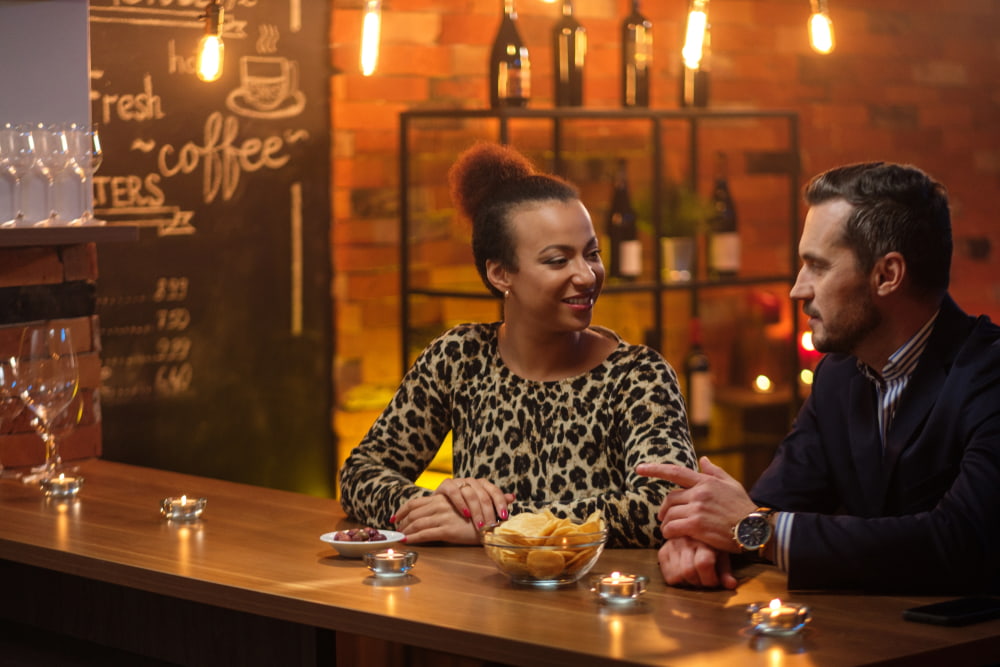Online dating has opened up new opportunities. However, it’s also made the modern dating world more complex. While dating apps provide the opportunity to meet a wider range of people, they also bring some unique challenges of their own. One of them is the phenomenon of ghosting. While ghosting doesn’t happen in online dating exclusively, this form of communication makes it easier to disappear without a trace.
Find out what exactly is ghosting, why it happens, and if it can be one of the love avoidant symptoms. You’ll learn more about this common behavior and understand how to cope with it more successfully if you experience it.
Let’s face it – ghosting sucks. For some, they just play the dating game and move on with a laugh. Those people are not reading this blog!
What Is Ghosting?
Ghosting is a part of modern dating lingo that means that someone’s disappeared from your life all of a sudden and without warning or any explanation. You may be thinking that your relationship is going well and then the other person unexpectedly goes on radio silence. They may stop responding to your messages or even block you online.
If you’re being ghosted, it’s normal to feel confused, hurt, and betrayed. You may have opened up to the person and started to develop feelings for them, so it’s understandable for this kind of behavior to catch you off guard. Because you can’t have closure, you may keep thinking about the person and wondering if you’ve done something wrong.

How Long Before You Call It Ghosting?
Every relationship is different, so it’s impossible to give a clear-cut answer to this. Since you know how long it usually takes the person to respond to your calls or messages, you’ll probably realize that something’s wrong if they haven’t reached out for longer. In general, a few days without getting back to you can probably be explained away. However, anything longer than that may be a cause for concern.
What Is Caspering In Dating?
Caspering is one of the newest phrases coined and mostly used by the users of online dating apps. It’s similar to ghosting because a person stops communicating with someone they’ve been in contact with up until that moment.
However, caspering is a gentler form of ghosting because they don’t just start ignoring you out of the blue. Instead, they only sever the ties after they’ve let you know how they really feel. People who casper wish to end things amicably, so they’ll tell you why they think things won’t work out between you. Although it may still be hurtful, caspering is not as unhealthy as ghosting because it gives you closure.
Why Do People Ghost?
There are a couple of reasons why a person may ghost you:
- It’s more convenient for them: Telling someone you’re not into them romantically is usually uncomfortable for both parties. People who ghost want to spare themselves the discomfort by avoiding this situation altogether. They take the easy way out by simply stopping all contact. However, the problem is that they don’t factor in the other person’s feelings. They rely on the idea that you’ll put two and two together on your own.
- They have other options: Because of the nature of online dating, people are exposed to more potential partners than ever before. Many people communicate superficially with many people at the same time. They can easily dismiss someone because they’re looking into many different opportunities and they’re overwhelmed with the variety.
- They aren’t ready to commit: It may be a matter of avoiding deeper connection. Some people prefer keeping their interactions at a superficial level and escape the relationship before it goes anywhere meaningful.
What Does Ghosting Say About A Person?
Generally speaking, ghosting stems from selfishness. People typically do it because it’s easier and more comfortable for them while at the same time showing disregard for the other person’s feelings.
These people may be showing signs of emotional immaturity because they’re willing to hurt the other person to avoid an unpleasant conversation. They also exhibit a lack of respect and empathy for others as they act in their own best interest without considering others.

How Do You Deal With Ghosting In A Relationship?
Most people have trouble letting go of relationships that ended without real closure. Ghosting may make you fixate on the person, thinking of all the things you could have done differently to keep them interested. It may have you going over your conversations in your head over and over again trying to think of explanations. However, this will only keep you going in circles without getting any answers.
In a way, overcoming ghosting is similar to getting over a messy breakup. Here are a few things you can do to make it easier on yourself:
- Although it may be tempting, don’t try to contact the person. This likely won’t be productive and it may keep you from exploring other opportunities and meeting other people.
- Don’t assume that you’ve done something wrong to drive them away. Ghosting is likely a result of their emotional immaturity and selfishness.
- Be kind to yourself. Give yourself time to heal and engage in activities that bring you joy, like hobbies and socializing with friends.
- See what you can learn from the experience. You may want to distance yourself from dating apps for a while or take a different approach to dating in general.
Who Can Teach Me Healthy Tactics For Coping With Love Addiction Withdrawal?
If you’ve had an experience with ghosting and would like to find a new love afterward, reach out to PIVOT. Thanks to our helpful and carefully crafted individual coaching sessions, you can get a better understanding of your past experiences with unavailable people and pave the way for a successful romantic relationship. We also provide assistance to people in relationships as part of our customized couples coaching program. For example, if you’d like to know how to get along with each others’ friends or discover if marriage is the best next step to take as a couple, we can help. Give us a call to book a spot!



















